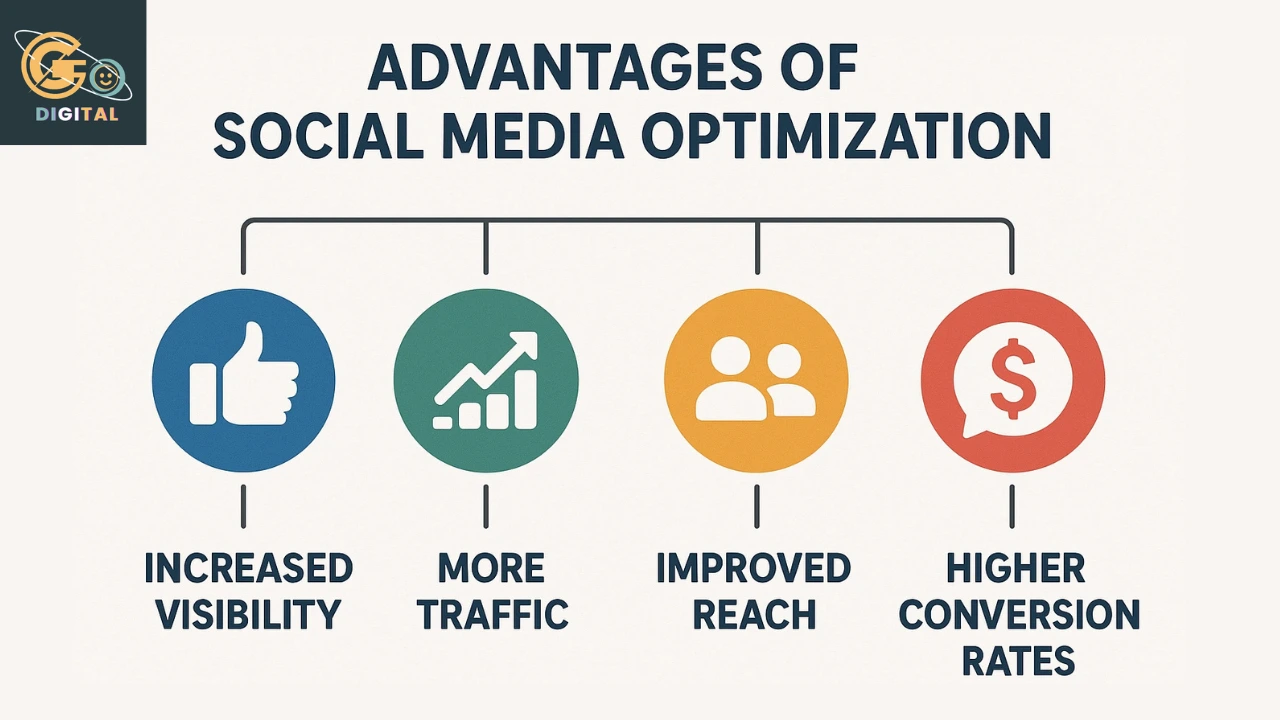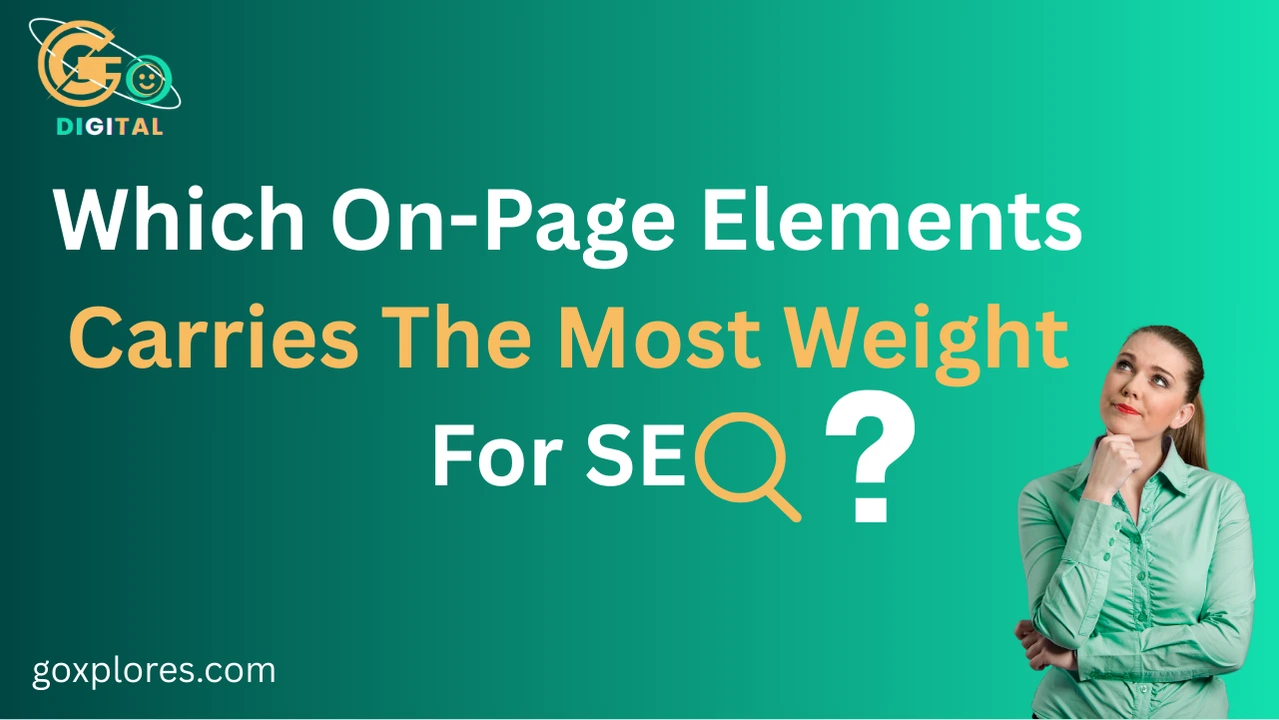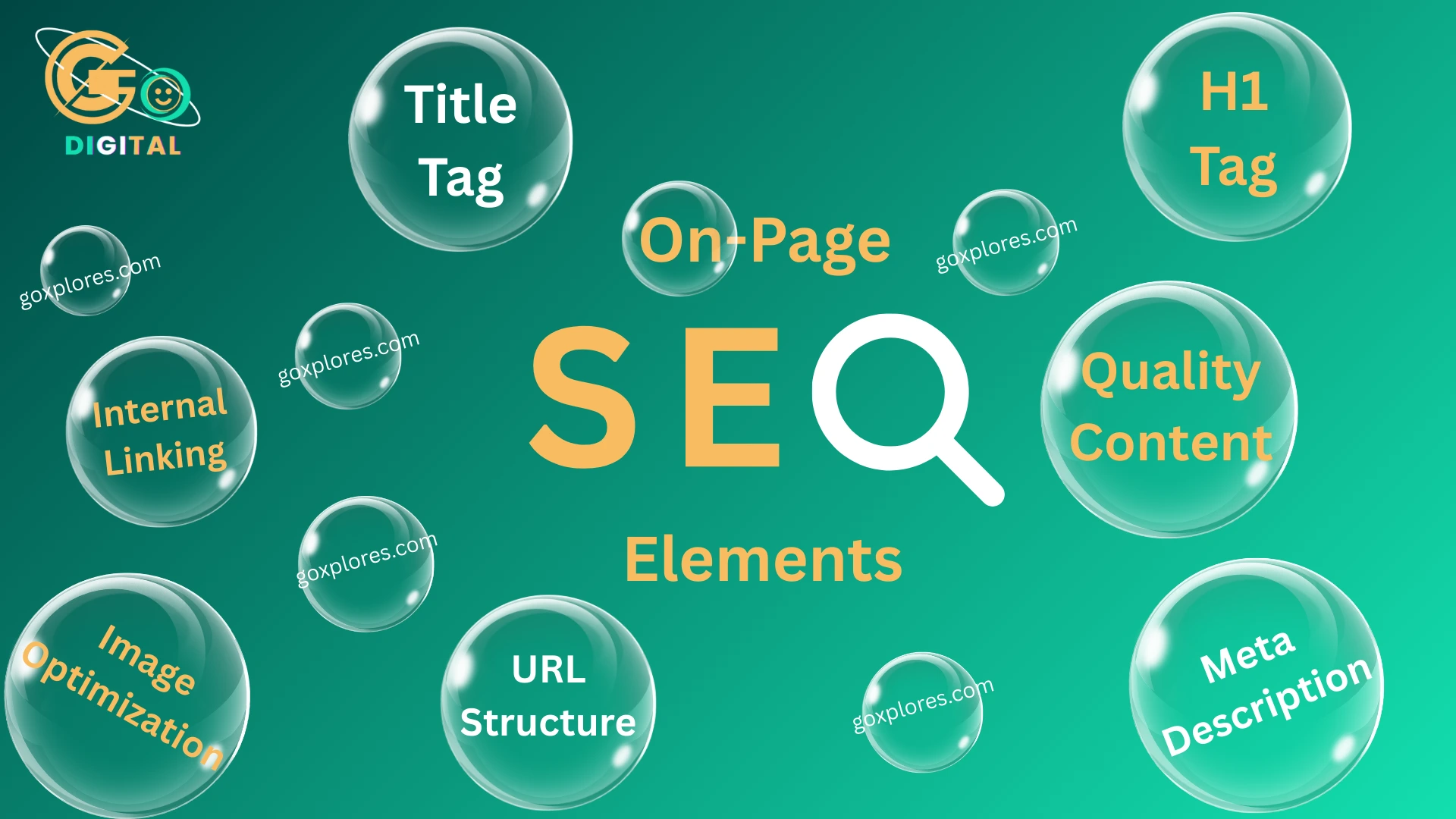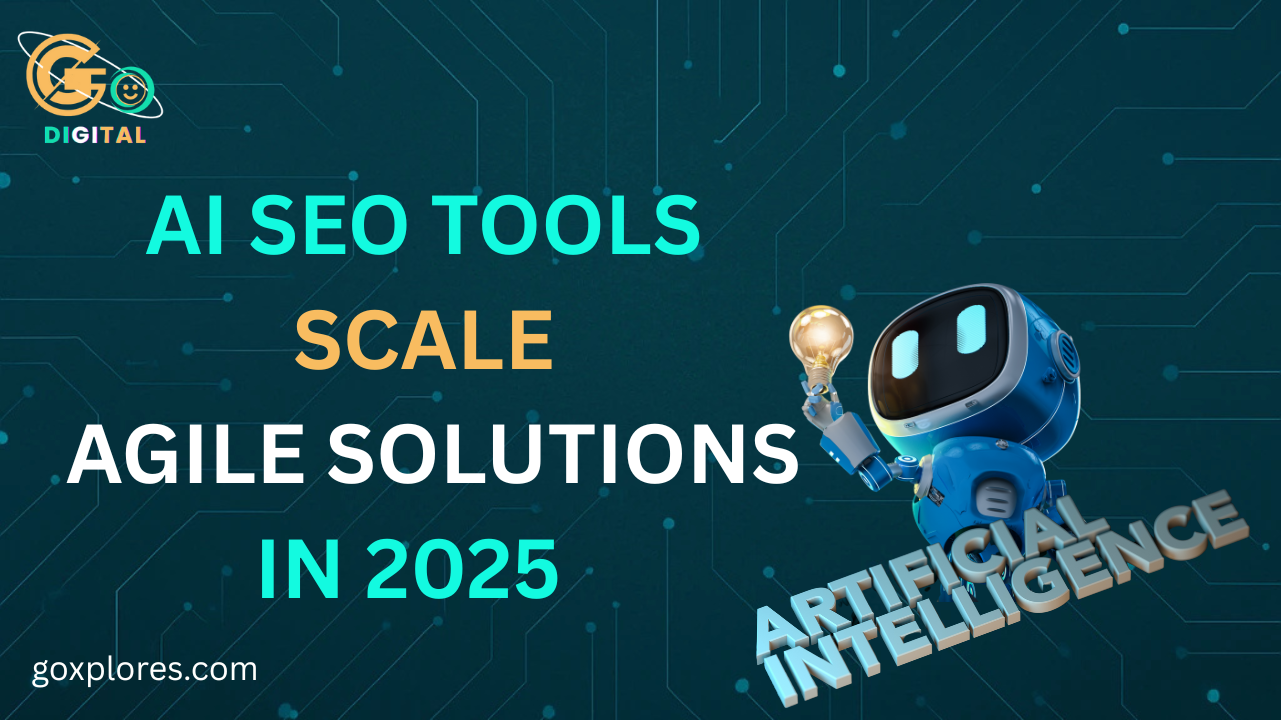
Social Media Optimization (SMO) goes beyond regular posting—it’s a powerful strategy to increase brand visibility, drive user engagement, and strengthen...
In the buzzing world of digital marketing, where websites fight daily for attention and visibility, a passionate entrepreneur named Aryan launched his dream project – GoXplores Digital. His mission was clear: help businesses grow online with powerful SEO strategies, targeted Meta Ads, and smart social media campaigns.

Table of Contents
ToggleHe poured his heart into designing the website, writing service pages, and posting blog content. But even after weeks, Google wasn’t noticing his work.
Aryan was confused. “I’ve built a solid site. so why am I not ranking?”
He began digging through YouTube videos, SEO blogs, and online courses. But no matter how much content he consumed, one question kept coming back to him -“Which on page element carries the most weight for SEO” That one question became his starting point, the key to understanding how search engines actually read and rank a website.
But before he could find the answer, Aryan needed to understand the types of SEO – because without the full picture, how could he find the most important piece?
As Aryan explored further, he discovered that SEO isn’t just one thing – it’s a mix of strategies that all work together. Here’s what he learned:

This is everything you control on your website – like content, keywords, title tags, images, and internal links. It’s the foundation of good SEO.
Example: Writing a blog on “How Meta Ads Boost ROI” and optimizing it with proper headings, images, and keyword-rich content.
This includes things outside your website – mostly backlinks (other websites linking to you), social shares, and online reputation.
Example: If a top marketing blog links to your blog post about “Local SEO Strategies,” it boosts your authority.
It focuses on the behind-the-scenes structure of your website, making sure that search engines can access, understand, and load your pages smoothly. This includes things like making your site mobile-friendly, speeding up load times, and using HTTPS for secure connections.
Example: GoXplores Digital uses a fast-loading theme and compresses images to improve site performance.
After spending weeks learning about the wider SEO strategies, Aryan decided to focus on what he could fully control — on-page SEO. As he tweaked titles, improved internal links, and optimized content structure, one thought kept echoing in his mind: which on page element carries the most weight for SEO? That single question became the turning point in his entire strategy.

Let’s walk through his journey step by step.
Aryan came across an important insight – the title tag plays a key role in on-page SEO. It’s that bold, blue link you see in Google search — the first thing that draws the user’s eye and signals relevance to Google.

Example from GoXplores.com:
Instead of a generic page title like:
“On-Page element for SEO”
He changed it to:
“Which On Page Element Carries The Most Weight For SEO | GoXplores Digital”.
This told Google exactly what the page was about – and helped attract users looking for those services.
Tip: Make sure to place your main or focus keyword around the starting of the title tag. And keep it under 50-60 characters.
After that, Aryan turned his attention to the H1 tags, which acts like the page’s headings , so that it help Search engines to get a quick understanding of your page’s main topic. It helps them figure out what the content is focused on.
On GoXplores’ Meta Ads page:
He changed:
“Welcome to Our Campaign Page”.
To:
“High-Performance Meta Ads That Drive Conversions”.
Clean, Keyword-rich, Specific.
Pro Tip: Stick to just one H1 tag per page to avoid confusion and keep your structure clear.
Aryan met with Rohit, the content expert, who reminded him:
“SEO isn’t about stuffing keywords. It’s about offering value. Solve problems, answer questions, and be helpful.”
So he restructured his service pages and blogs by:
For example, on the SEO page:
“At GoXplores Digital, we don’t just boost rankings. We audit your entire site, fix technical issues, and create content that your audience and Google love.”
Better content = Longer people stay = which improves time spent on page and rankings.
Before Aryan optimized his images, his site loaded slowly, and none of the visuals had ALT tags.
So he did this:
Bonus: ALT text helps Google understand image content and improves accessibility. You can learn more about Alt text by Google Developer.
Aryan wrote custom meta descriptions for every service page and blog.
Even though Google doesn’t use it as a direct ranking factor, a good meta description increases click-through rate, which does influence rankings over time.

Example:
“Need better visibility online? GoXplores Digital offers tailored SEO strategies for startups and local businesses across India.”
It’s short under 150-160 characters, Convincing , and keyword-smart.
Aryan connected his blog and service pages to help users navigate and keep them on the site longer.
On the blog “Best SEO Tips for Businesses,” he added:
“Explore out our Search Engine Optimization(SEO) services and take the step to rank your website.”
So, he divert user from blog page to service page by adding link on “Best SEO Tips For Businesses”. Adding links between related pages on your website doesn’t just guide visitors – it also helps Google make sense of how your content is connected, allowing it to crawl and rank your pages more efficiently.
Messy URLs can confusing not only for your visitors but also for search engines trying to figure out what your page is about.
Aryan changed:
www.goxplores.com/page?id=45
To:
www.goxplores.com/search-engine-optimization/.
Tip: Avoid numbers, special characters, or long strings. Keep it short and descriptive.
Aryan’s SEO journey taught him that while the title tag often carries the most weight individually, it only works best when combined with strong content, clean structure, and helpful user experience.
Here’s his takeaway from GoXplores Digital’s SEO strategy:
GoXplores Digital’s SEO Checklist:-
Conclusion
SEO isn’t magic. It’s strategy, structure, and story – all working together.
Aryan didn’t just find the answer to “which on page element carries the most weight for SEO.” He discovered that great SEO is like a team sport. Every element matters. And when done right – your business shows up, stands out, and gets chosen.
And today? GoXplores.com ranks on Google, gets traffic daily, and continues helping brands grow across India and beyond.
Get weekly SEO tips & digital insights.
Get a free analysis of your website – limited time only!
Request Now →Hi! I'm Manish Chand, founder of GoXplores Digital. I have written about SEO (which on-page elements carry the most weight for SEO). Hope you understand it well and realize its importance for SEO.

Social Media Optimization (SMO) goes beyond regular posting—it’s a powerful strategy to increase brand visibility, drive user engagement, and strengthen...

In the fast-evolving world of digital marketing, traditional SEO just doesn’t cut it anymore. This blog explores how AI SEO...